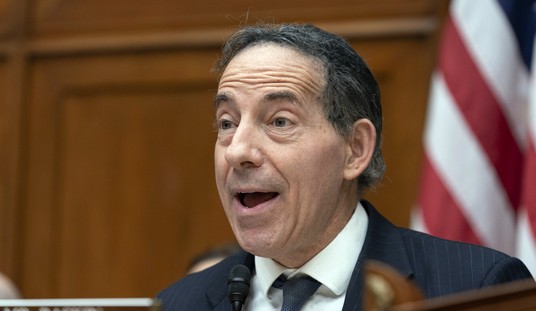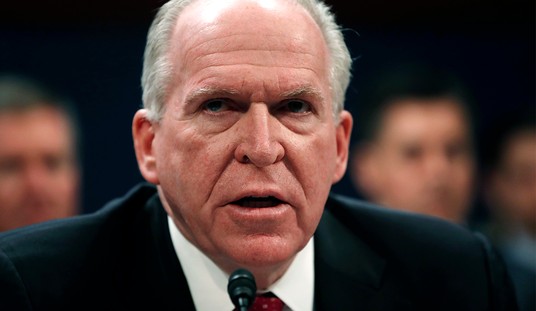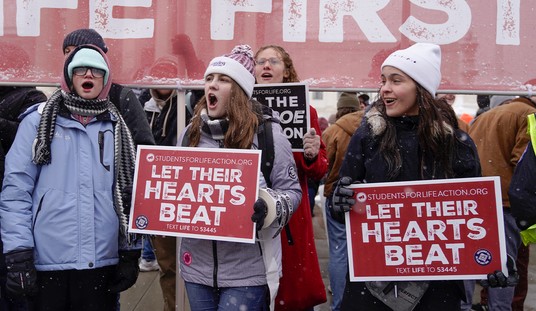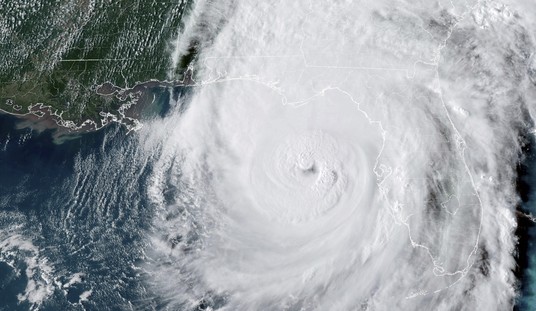One of the freedoms enjoyed by unprincipled partisans and the media, to the extent that the Venn Diagram of these two things aren’t completely congruent, is that everyday is a brand new day and nothing you said the day before counts. All that matters is that you are either defending your guy or attacking the other guy.
Two stories in particular bring that tendency to light. The first is the issue of Russian interference in the recent election to the benefit of Donald Trump. The second is a silly nothingburger about Trump not receiving daily briefings from the CIA.
Let’s look at these in turn. Russia is, as Mitt Romney said in 2012, a geopolitical threat. Russia is not our friend. Russia is not our partner. At best, Russia is a Third World kleptocracy that generates foreign policy adventures for domestic political reasons. At worst, Russia is a regional security threat more like Iran than China. This is not news. In 2008, Sarah freakin Palin correctly pointed out that Russia would inevitably attack Ukraine. This caught the Obama White House and the Hillary Clinton State Department completely by surprise. Unsurprisingly, Palin was attacked at the time because Obama is SO SMART and Palin is SO DUMB. And then there was the famous incident in the 2012 debate, covered here by my colleague Joe Cunningham, when the media ridiculed Mitt Romney for pointing out a very obvious fact. But suddenly the Russians are a threat and they are enough of a threat that they were actually bold enough to try to pick their favorite candidate to be the president. (In fairness, the Russians had a great deal of influence over both major candidates, so it isn’t like they were in danger of an implacable foe being elected.)
Erick Erickson notes his sudden change of direction:
…The FBI does not think the Russians did much while the CIA suggests the Russians did quite a lot. That gets the heart of the issue.
For the last decade, media reports on the CIA have been quite skeptical. Many members of the press have written reports or opined on television in the past decade that the CIA has not been all that capable. From missing 9/11 to allegedly botching the issue of weapons of mass destruction in Iraq to other national security issues, press coverage of the CIA has been decidedly negative. In fact, of the two agencies, the CIA has routinely been portrayed as the agency that tells each Presidential administration what that administration wants to hear.
Up until James Comey’s letter a week before the election, the press has routinely treated the FBI with greater respect. But, because Comey is perceived as having damaged Hillary Clinton, the FBI’s credibility with the press has suffered.
Then there is the matter of Russia.
Four years ago, many of the very same reporters who are now squalling about Russian influence in American presidential elections engaged in sustained ridicule of Mitt Romney for daring to suggest Russia was a geopolitical threat. In 2008, these same reporters mocked Sarah Palin for suggesting Russia would invade Ukraine if Obama were elected.
Now look where we are.
But this goes back even further. In 1991, Soviet records revealed then Senator Edward Kennedy had secretly asked the Soviet Union to intervene in the 1984 presidential election. Kennedy was never held to account for the revelations. In fact, at the time many of the now elderly deans of the press corps were dismissive of the unearthed documents.
You simply can’t have this both ways. Either you rely on the CIA or you don’t. Either Russia is a threat or it isn’t. (For the record, I’m in complete agreement with Caleb on this count. I’ve no doubt at all that the Russians did their level best to muck around in our election. But I believe their goal was strategic, that is attacking the credibility of our electoral system in the minds of the voters, and it was not aimed a electing Trump. Hillary Clinton and her inner circle had ties every bit as close to the Kremlin at Paul Manafort, though those ties were much less unsavory and don’t reek of the Russian mob.)
In fact, as Erick points out. The Democrats didn’t think the Soviet Union was a threat. And until last Friday they didn’t think Russia was a threat.
The other issue is a how frequently Trump will personally receive the Presidential Daily Brief (PDB). Apparently, Trump’s decision to not receive the PDB is a threat to the very existence of the Republic.
President-elect Donald Trump said he does not need to receive the presidential intelligence briefing every day, suggesting in an interview aired Sunday that such briefings are repetitive and he is happy to rely on those around him on matters of intelligence and national security.
Trump has been given the daily intelligence briefing just a handful of times since winning the White House last month, alarming some in the national security community. But those briefings do not always change day to day, Trump told “Fox News Sunday” host Chris Wallace in an interview taped over the weekend. And when he does receive the briefing, Trump said he always instructs those offering him the information to contact him should new developments emerge.
Let’s take a quick trip back centuries ago to 2012 and this ad by American Crossroads whacking Obama for taking the PDB only about one third of the time:
The Washington Post’s “fact checker,” Glenn Kessler (this is the guy who is trying to stomp out “fake news”) gave the claim “three Pinocchios” for untruthfulness based not on the actual math but this:
Clearly, different presidents have structured their daily briefing from the CIA to fit their unique personal styles. Many did not have an oral briefing, while three — two of whom are named Bush — preferred to deal directly with a CIA official. Obama appears to have opted for a melding of the two approaches, in which he receives oral briefings, but not as frequently as his predecessor.
Ultimately, what matters is what a president does with the information he receives from the CIA. Republican critics may find fault with Obama’s handling of foreign policy. But this attack ad turns a question of process — how does the president handle his intelligence brief? — into a misguided attack because Obama has chosen to receive his information in a different manner than his predecessor.
Read Trump’s response again and tell me how it differs from the defense of Obama. It doesn’t. In fact, in another Washington Post article defending The Precious against attack it is pointed out there is no standard way for president’s to receiving this intelligence briefing:
Each president has had his own style of dealing with the PDB.
Jimmy Carter read it after listening to highlights and other information from his national security adviser, Zbigniew Brzezinski. Carter then sent notes on the PDB to Brzezinski.
Ronald Reagan let his national security advisers brief him on it, then asked questions; Bill Clinton read it ahead of time, but early in his career he canceled the briefing when he believed that the PDB taught him nothing new and that he had more important budgetary matters to handle. George H.W. Bush was briefed on it and, as a former CIA director, often stretched the meeting to discuss how information had been obtained. George W. Bush read the PDB as he was being briefed, asking questions along the way.
The George W. Bush administration included a threat matrix in each morning’s session. Now, counterterrorism issues, when necessary, are included in the PDB materials, and Obama meets weekly with FBI Director Robert S. Mueller III and others specifically on the terrorism threat.
Obama reads the PDB ahead of time and comes to the morning meeting with questions. Intelligence briefers are there to answer those questions, expand on a point or raise a new issue. Clapper may be present once or twice a week, but most often one of his deputies is in attendance in case an intelligence community issue arises.
In fact, Reagan probably received the PDB personally only a handful of times. This from the official history of the PDB:
Before the election, candidate Reagan received only one intelligence briefing. It was held on 4 October 1980 at Wexford, a borrowed country estate near Middleburg, Virginia, where the Governor was staying for a period during the campaign. DCI Adm. Stansfield Turner, accompanied by three senior Agency officers, represented CIA. Reagan was accompanied by vice-presidential candidate George Bush; his transition chief of staff Ed Meese; campaign director William Casey; and Richard Allen, his adviser on national security matters.
…
Agency officers who provided daily intelligence support to the White House during the Reagan administration remember that his several national security advisers varied markedly in the time and attention they devoted to the PDB. In all cases, however, they received the Agency’s briefer every day, read the PDB, and ensured that it was forwarded to the President. Of the group, Adm. John Poindexter was perhaps the least interested in reading the intelligence product.Thinking back over the eight years of the two Reagan administrations, the Agency’s briefing officer remembered only one or two occasions when the National Security Adviser took him into the Oval Office to brief the President directly. Unlike Carter, Reagan almost never wrote comments or questions on the PDB. On a day-to-day basis, therefore, the Agency’s knowledge of the President’s intelligence needs was limited. Such knowledge came only indirectly when Reagan’s interests were passed on by the National Security Adviser or conveyed by the President directly to the CIA Director.
You can’t have this both ways. If it wasn’t important for Obama to received daily briefings, it can’t be important for Trump to receive them. And to those on the right who are making an industry out of parroting leftist attacks on Trump, if Reagan received a total of one briefing while president-elect then criticizing Trump for taking more than one smacks of situational outrage.













Join the conversation as a VIP Member